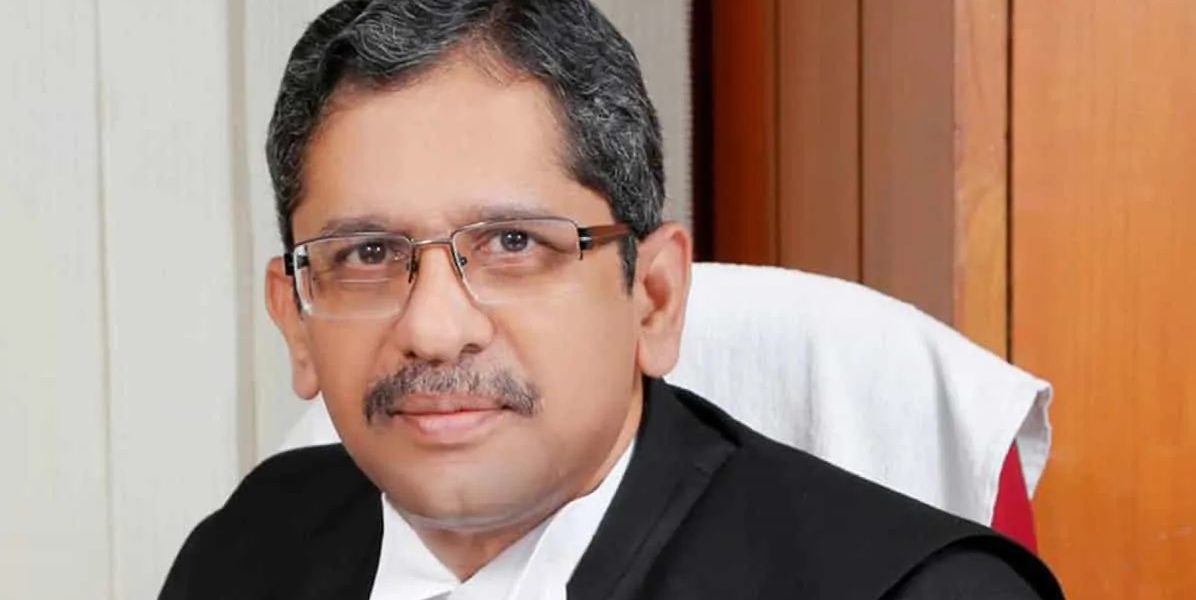New Delhi: Chief Justice of India N.V. Ramana reportedly cited a rule during a three-member panel meeting chaired by Prime Minister Narendra Modi on Monday to select a new director for the Central Bureau of Investigation (CBI) that ruled out two names being considered by the government for the post.
Besides CJI Ramana and Modi, Congress leader and Leader of the Opposition in Lok Sabha, Adhir Ranjan Chowdhury, who is part of the high-powered panel to zero in on a name, held deliberations at the prime minister’s residence for 90 minutes on Monday. The post has been vacant since February this year.
Citing sources, NDTV reported that CJI Ramana insisted that a police officer with less than six months of service should be not considered for the post referring to a particular Supreme Court judgement. Apparently, it is for the first time such a rule has been put forward during the selection of a new CBI director, and Ramana emphasised that the rule should be complied with.
Therefore, it has eliminated Rakesh Asthana, the Border Security Force chief retiring on August 31, and National Investigation Agency chief Y.C. Modi, retiring on May 31 – the two names which have been at the top of the heap in the government’s shortlist.
The only three names now being considered by the panel are former Maharashtra director general of police Subodh Kumar Jaiswal, director general of Sashastra Seema Bal (SSB) K.R. Chandra, and home ministry special secretary V.S.K. Kaumudi. Jaiswal, the senior-most, is reportedly the frontrunner.
Dissent
Meanwhile, panel member Chowdhury said that the Department of Personnel and Training (DoPT) had given him only 16 probable names on Monday, while he had earlier on May 11 had a list of 109 names. He raised objection over DoPT pruning the list down to 16 names on its own while pointing out that the members of the panel were taken very casually.
He specifically said that it was the responsibility of the panel, not DoPT, to take a call on eliminating names from the list, and pointed out that five of 16 names were already retired.
To express his dissent, Chowdhury sought deferment of the panel meeting. However, the government did not agree with his demand. In fact, the panel had met nearly after a four-month delay. The panel finally shortlisted the three names mentioned above.
Shortlisted officers
Frontrunner Subodh Jaiswal is a 1985-batch IPS officer of Maharashtra cadre. He is currently serving as the chief of CISF. Earlier, he held the positions of Mumbai police commissioner and the Maharashtra DGP before being called for central deputation earlier this year. He has had long stints in the Intelligence Bureau and the Research and Analysis Wing (RAW), though he has no experience of serving in the CBI.
In Maharashtra, Jaiswal had carried probe into the infamous Telgi scam, which was later taken over by CBI. Jaiswal was then heading the State Reserve Police Force. After that, he joined the Maharashtra Anti Terrorism Squad and went on to serve the Research and Analysis Wing for almost a decade.
Under Devendra Fadnavis government, he returned to the state and had been appointed as Mumbai commissioner in June 2018. He later served as Maharashtra DGP.
It was under his supervision that the Elgar Parishad and Bhima Koregaon violence cases were investigated before being transferred to CBI. Early this year, he came on central deputation.
Another shortlisted IPS officer is the current director general of Sashastra Seema Bal (SSB) K.R. Chandra. Earlier, he held positions in the Bureau of Civil Aviation Security (BCAS) and the Special Protection Group (SPG), which provides security to the prime minister. He has also served extensively in his home state of Bihar. A postgraduate in Economics from Jawaharlal Nehru University in Delhi, Chandra will retire from service on December 31, 2021.
The third shortlisted name is the 1986-batch IPS officer of Andhra Pradesh cadre V.S.K. Kaumudi, who is currently serving as special secretary in the ministry of home affairs. He was earlier the chief of the Bureau of Police Research and Development (BPR&D). Under him, BPR&D had prepared a comprehensive report on fake news and shared it with police forces across the country last May.
Kaumudi has also held long stints in his state and at the Centre. Besides working as SP of Adilabad and Guntur districts in the undivided Andhra Pradesh, he was also posted as joint commissioner of police of Hyderabad city, and commissioner of police, Visakhapatnam. He has also served in the Intelligence Security Wing, Economic Offences Wing of CID, Training, Provisioning and Logistics, and Welfare wings of Andhra Pradesh Police.
In his first stint at the Centre, he worked as SP, CBI, in Delhi and Patna. At senior levels, he worked as additional director general of police in the National Investigation Agency (NIA) and the BPR&D, and headed the J&K zone of the Central Reserve Police Force (CRPF). As director general, BPR&D, he expedited research and national police mission projects. He has been posted as special secretary (Internal Security), ministry of home affairs, since August 19, 2020.
































